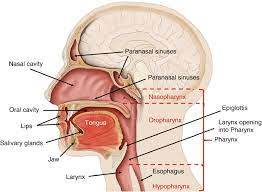+918048035590

This is your website preview.
Currently it only shows your basic business info. Start adding relevant business details such as description, images and products or services to gain your customers attention by using Boost 360 android app / iOS App / web portal.
Head and Neck Infection Treatment The treatment o...

Head and Neck Infection Treatment The treatment of head and neck infections depends on the specific type of infection, its severity, and the underlying cause. Infections in the head and neck region can include conditions such as sinusitis, tonsillitis, pharyngitis (sore throat), dental infections, ear infections, and infections of the salivary glands, among others. Below is a general overview of the treatment approaches for these types of infections: Antibiotics: Bacterial infections are commonly treated with antibiotics. The choice of antibiotic depends on the type of bacteria causing the infection and its sensitivity to different medications. It is essential to complete the full course of antibiotics as prescribed by the healthcare provider, even if the symptoms improve, to ensure the infection is fully eradicated. Analgesics: Pain relievers such as acetaminophen or ibuprofen may be recommended to alleviate pain and reduce fever associated with head and neck infections. Antiviral Medications: If the infection is caused by a virus (e.g., influenza or herpes simplex virus), antiviral medications may be prescribed. However, most viral infections in the head and neck area are self-limiting and resolve on their own with supportive care. Decongestants: In cases of sinusitis or nasal congestion, decongestants may help reduce swelling and relieve breathing difficulties. However, these should be used cautiously, as they can cause side effects in some individuals. Warm Compresses: Applying warm compresses to the affected area (e.g., around the sinuses or swollen glands) can help reduce pain and inflammation. Gargling: For infections of the throat, gargling with warm saltwater can soothe the throat and help reduce discomfort. Saline Nasal Irrigation: Nasal irrigation using saline solution can help clear mucus and reduce congestion in cases of sinusitis or nasal infections. Dental Treatment: Dental infections often require dental procedures, such as root canals or tooth extractions, to address the source of the infection. Incision and Drainage: In some cases, abscesses or collections of pus may need to be drained to promote healing and relieve pressure. It's crucial to seek medical attention if you suspect a head or neck infection or if symptoms persist or worsen despite home remedies. Delaying treatment can lead to complications or the spread of the infection to other areas. Prevention of head and neck infections involves good hygiene practices, such as regularly washing hands, avoiding close contact with individuals who are sick, and getting vaccinated against preventable infections like influenza and some types of bacterial infections. Additionally, maintaining good dental hygiene is essential to prevent dental infections and related complications.

